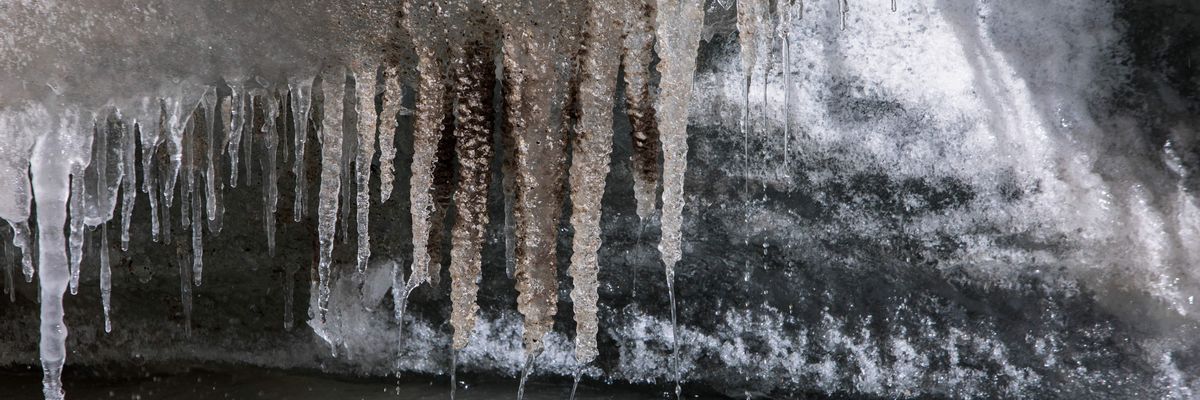A team of international scientists based in Nepal warned Tuesday that glaciers in the Hindu Kush Himalaya are melting at an accelerated rate and could lose up to 80% of their volume by century's end if ambitious action isn't taken to slash planet-warming emissions.
The
latest research from the International Center for Integrated Mountain Development (ICIMOD) shows that Himalaya glaciers disappeared 65% faster in the decade between 2010 and 2020 than in the previous 10 years as a result of global temperature increases.
By 2100, if current emissions trajectories hold, the critical glaciers that provide fresh water for 2 billion people in Asia could irreversibly lose 80% of their ice, according to the new report, which was published amid a punishing heatwave in the region.
"Snow cover is projected to fall by up to a quarter under high emissions scenarios—drastically reducing freshwater for major rivers such as the Amu Darya, where it contributes up to 74% of river flow; the Indus (40%); and Helmand (77%)," the researchers found. "The extent of frozen ground (permafrost) is decreasing, which will lead to more landslides and problems for infrastructure at high elevation."
Izabella Koziell, ICIMOD's deputy director-general, said Tuesday that "with two billion people in Asia reliant on the water that glaciers and snow here hold, the consequences of losing this cryosphere are too vast to contemplate."
"The glaciers of the Hindu Kush Himalaya are a major component of the Earth system," said Koziell. "We need leaders to act now to prevent catastrophe. There is still time to save this critical region, but only if fast and deep emissions cuts start now. Every increment of a degree of warming matters to glaciers here and to the hundreds of millions of people that depend on them."
"It underscores the need for urgent climate action. Every small increment will have huge impacts and we really, really need to work on climate mitigation."
The new report stresses that the glaciers and snow-covered mountains of the Hindu Kush Himalaya are a crucial water source for 12 river basins that run through 16 countries, meaning increasingly rapid melting poses a dire threat to people and wildlife in the region.
"Mountain communities are already living with the impacts of the accelerated melting of glaciers, changing snowfall patterns, growing variability in water availability, and increasing incidences of cryosphere-related hazards," the report notes. "These changes have a direct impact on their lives and livelihoods."
Philippus Wester, a lead author of the new report,
toldAFP that the speed with which the Himalayan glaciers are warming is "very worrying."
"This is going much faster than we thought," said Wester. "It underscores the need for urgent climate action. Every small increment will have huge impacts and we really, really need to work on climate mitigation... that is our plea."
The study was released hours after
more than 140 economists and policy experts implored rich countries on Monday to end fossil fuel subsidies and tax the very wealthy to fund the kinds of sweeping climate measures needed to prevent devastating glacial melting and other consequences of runaway warming.
Also on Monday, the World Meteorological Organization and the European Union's Copernicus Climate Change Service published research showing that the combination of below-average precipitation and scorching summer temperatures across Europe "contributed to the largest loss of glacial ice recorded in the European Alps" last year.
"The Greenland ice sheet continued to lose mass during 2022," the organizations found, "and in September periods of exceptional warmth led to widespread surface melt."
The ICIMOD study warns that even if global warming is kept between the Paris accord targets of 1.5°C and 2°C above preindustrial levels, the Himalayan glaciers "are expected to lose 30%-50 % of their volume by 2100 relative to 2015."
Saleemul Huq, director of the Bangladesh-based International Center for Climate Change and Development, said Tuesday that the study lays bare "the devastating implications this will have on two billion people and the nature that rely on the water and ecosystems of the Hindu Kush Himalaya."
"It is beyond time that governments, donors, and agencies step up: to exit fossil fuels and honor their commitments to limit warming, to help communities adapt to those temperature rises already locked in, and to compensate them for property and ways of life that have already been lost," said Huq.
